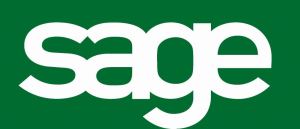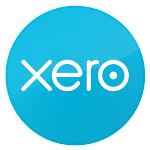I am often asked by a new business owner what accounts software they should use. A simple question but of course it all depends .....
Today, for example, I was asked by a small charity what software I recommend they use because they want to change from spreadsheets. It is important to know what they want to achieve with the software before making a recommendation but in this particular instance it is about using software which is not restrictive to other users. The finances of small charities are usually managed by an unpaid Treasurer and one day that Treasurer will want to move on and someone else will take over. Spreadsheets for simple transactions are ideal because they can usually be easily understood by anyone and can be changed by a new Treasurer to work better for them.
However as soon as you invest in software you may limit who will be willing to take on the role. Anyone who is not used to using software may find it too daunting to offer their services, especially if they are a volunteer. But times are changing and everyone has to adapt. Using a cloud software means more than one person can have access to the accounts if needed and many of these softwares are quite straightforward to use. Getting the software set up correctly in the first place is the key and we provide set up and some initial training to help set you on the right track.
 All businesses and charities should think carefully about the software they choose to keep their accounts. Sage 50 has been around for many years and also has a cloud version. If you use Sage 50 Accounts the software will be on a single PC or laptop, you will either purchase it outright and keep it upgraded by paying a yearly subscription or buying a new version every few years. Or you can pay an ongoing monthly subscription for it. You can also choose to purchase ongoing telephone support with either of these options and Sage have excellent telephone support.
All businesses and charities should think carefully about the software they choose to keep their accounts. Sage 50 has been around for many years and also has a cloud version. If you use Sage 50 Accounts the software will be on a single PC or laptop, you will either purchase it outright and keep it upgraded by paying a yearly subscription or buying a new version every few years. Or you can pay an ongoing monthly subscription for it. You can also choose to purchase ongoing telephone support with either of these options and Sage have excellent telephone support.
So if you purchase the desktop version of Sage the person doing the accounts will need to use the computer it is loaded on to. Theywill also need to be familiar with Sage because it is not as user friendly as some of the newer cloud accounting softwares. This is important to know when making your choice because any change of bookkeeper or finance volunteer will require some knowledge of Sage or a willingness to learn it.
Cloud accounting software is much more straightforward to use although, of course, like any package, it does need some accounts understanding. The main players in this market are Xero, Sage One and Quickbooks Online but if you do your research you will find many others such as Kashflow and Free Agent and even some which are completely free. Whatever you choose, again you need to bear in mind who is going to use it and who will you be able to find who can use it when the current person is not able to any more.
 Although we have used other cloud accounting softwares Xero is our cloud accounting software of choice. It suits the businesses and charities we work with and because it is quite straightforward to learn to use businesses can find their way about quite easily especially after some initial training. Xero has two monthly subscription options depending on how many transactions you have each month.
Although we have used other cloud accounting softwares Xero is our cloud accounting software of choice. It suits the businesses and charities we work with and because it is quite straightforward to learn to use businesses can find their way about quite easily especially after some initial training. Xero has two monthly subscription options depending on how many transactions you have each month.
The advantage of cloud accounting software is that you don't have to worry about losing the data or taking a backup. It is available to you whenever and wherever you want to look at it. You don't need to print endless reports because you can just access the information you are being asked for from your laptop during a meeting. Cloud accounting software can link with your bank so the daily transactions arrive in your accounts software ready for you to allocate ensuring your accounts can be kept up to date.
Whatever software you choose to use the information you get out of it is only as good as the information you put into it. So if you don't allocate income and expenses to the right places in the accounts your reports will be nonsense!
Businesses and charities will need to be using accounts software soon because the way accounts are reported to HMRC and Companies House is beginning to change. VAT registered organisations over the VAT threshold will have to submit VAT returns through their accounts software from April 2019. And there are plans by HMRC for the self-employed and landlords to submit quarterly income and expense returns from April 2020 for which accounts software may well be required.
So if you are considering moving your accounts from spreadsheets to accounts software think ahead to how you want to access your accounts, who will do it, how easy it will be for someone else to use if necessary and finally whether it has the features you need for your business.
And if you need some help with getting set up in Xero or Sage 50 Accounts we can get you started and provide you with some initial training and ongoing support. We are Sage Certified Advisors and Migration specialists so can also help you convert to Xero from another accounting package.
